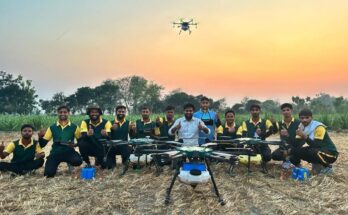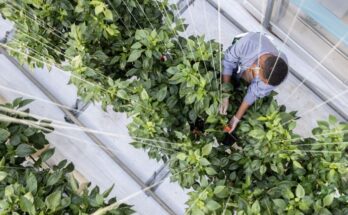Omnivore and AgFunder announced the publication of the India Agrifood Start-ups Investment Report for FY2020-21. This report is an annual assessment of the latest funding trends in the agritech and foodtech sectors in India. AgFunder is one of the world’s most active foodtech and agritech VCs, while Omnivore is India’s largest and most active agritech venture capital firm. The report covers FY2020-21, from 1st April 2020 to 31st March 2021.
Despite the pandemic, the agrifood tech sector witnessed an investment boom. Total funding into Indian agrifood start-ups saw a 100 per cent YoY jump from USD 1.1 billion in FY2019-20 to USD 2.1 billion in FY2020-21. Deal numbers also went up, from 133 in the last financial year to 189 in FY2020-21.
Key highlights of India Agrifood Start-up Investment Report
- For the first time ever, the number of upstream deals (98) surpassed downstream deals (91). Upstream as defined here includes start-ups developing technologies for farmers and agricultural value chains, while downstream includes consumer-facing start-ups in eGrocery, restaurant marketplaces, and premium branded foods.
- Looking beyond upstream and downstream, Farm Tech (which includes upstream categories plus Farm to Consumer e-Grocery) grew aggressively, with start-ups raising USD 527 million across 119 deals, up from USD 431 million across 74 deals in FY2019-20.
- FY2020-21 saw prominent generalist VC funds participating in multiple Farm Tech deals including Sequoia (DeHaat, Bijak, Animall, Procol); Matrix (Country Delight, Captain Fresh, VeGrow); Blume Ventures (Procol, Pixxel, Jai Kisan); Chiratae Ventures (CropIn, Ergos); RTP Global (DeHaat, Bijak); Lightspeed (Pixxel); and Prosus Ventures (DeHaat).
- Midstream Technologies was the most active category among upstream sectors, with start-ups raising USD 176 million across 29 deals. Funding was fuelled by the need to improve efficiencies in India’s fragmented supply chains that were severely impacted by the COVID-19 pandemic.
- Agribusiness Marketplaces raised USD 86 million in FY2020-21, up from USD 30 million in FY2019-20, emerging as the second most active upstream category in terms of investment value and deal volumes. The COVID-19 pandemic created an immense opportunity for marketplace start-ups that provided access to various products and services for farmers and agribusinesses.
- Restaurant Marketplaces continued to be the most dominant downstream sector, raising 64 per cent of the total funds in the period. Capital raising in the space has largely been concentrated between two players, Zomato and Swiggy.
You may also like to read: Omnivore’s latest impact reports highlight progress in climate-smart agriculture in India
Speaking on the investment trends in agrifood start-ups, Louisa Burwood-Taylor, Head of Media and Research, AgFunder, said, “The India AgriFood Startup Investment Report has recorded the dynamics of this critical ecosystem since 2013. Particularly notable in this year’s report, and a milestone for the industry, is the increase in investment in technologies operating closer to the farm. While Farm Tech is a well-established category in India compared to many other Asian and emerging market regions, this year’s $500m+ of investments is a testament to the maturity and growing range of technologies for Indian farmers today and investors backing them.”
Elaborating the report, Mark Kahn, Managing Partner, Omnivore, said, “This comprehensive report offers a closer look at the vibrant agritech and foodtech ecosystem in India. Despite the challenges of the pandemic, tenacious Indian start-ups helped keep farmers, SMEs, and consumers afloat when traditional supply chains collapsed. We believe that FY2020-21 will be remembered as the inflection point in Indian agritech, and the beginning of a revolution in rural India.”




